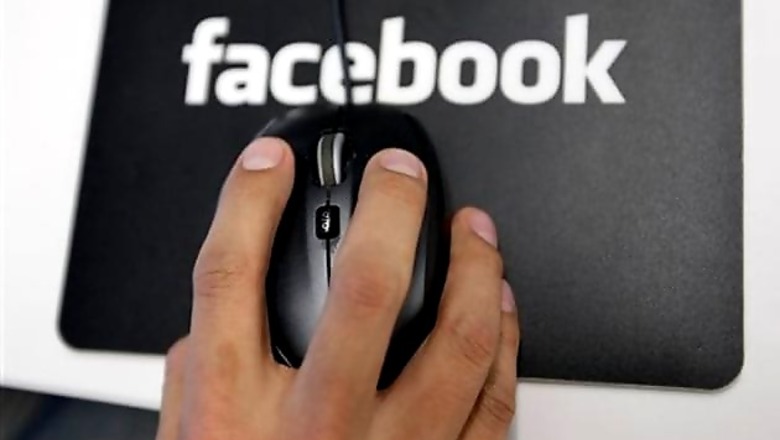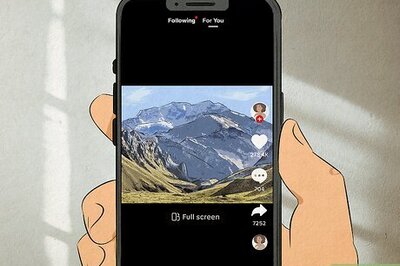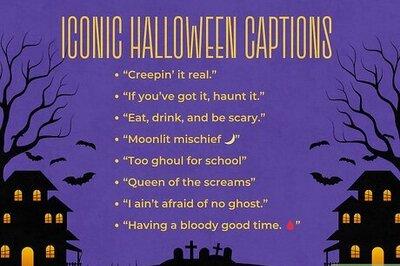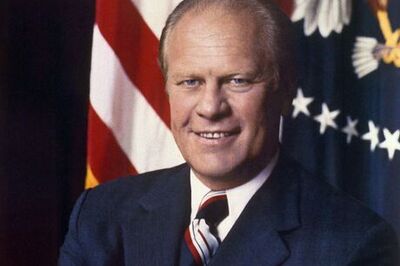
views
New York: More than a billion people now log into Facebook each month to check up on old friends, tag photos of new ones and post about politics, religion, cats or what their kids are doing.
That's double the 500 million it hit in July 2010 - what now seems like a lifetime but was a little more than two years ago. August 2008 marked another big juncture, 100 million users.
The latest milestone also amounts to nearly half of the world's roughly 2.5 billion Internet users, as measured by the International Telecommunications Union.
So who are these people?
Most of them - 81 per cent - live outside of the US and Canada. Many of them log in on mobile devices rather than personal computers, and the company now has 600 million mobile users.
The people joining now are young, with a median age of 22. It was 23 in 2010 and 26 in 2008 and 2007. Most of them are from Brazil, India, Indonesia, Mexico and the United States. They are unlikely to be from China, the world's most populous country and home to its largest Internet population. And millions of them are not actual people. Facebook acknowledged in August that 8.7 per cent of its then-955 million users may be duplicate or false accounts. At that rate, as many as 87 million accounts are fake.
As expected, the longer users are on Facebook, the more "friends" they have on the site. A user who signed up two years ago has an average of 305 friends. Someone who signed up in December 2005, when Facebook had nearly 6 million users, now has nearly 600 friends, on average.
CEO Mark Zuckerberg marked the milestone on his Facebook page, as he has in the past when the site's users hit nice round numbers.
"If you're reading this: thank you for giving me and my little team the honour of serving you," he wrote. "Helping a billion people connect is amazing, humbling and by far the thing I am most proud of in my life."
But he acknowledged in a Today show interview that the company is going through a difficult patch.
"We're in a tough cycle now and that doesn't help morale, but people are focused on what they're building," he told Matt Lauer during the interview.
The Menlo Park-based company's stock never recovered from a botched initial public offering in May, at one point seeing its value slashed in half by shareholders who don't think it's increasing revenue fast enough, especially from its fast-growing mobile user base.
Last month Zuckerberg gave his first interview since Facebook's shaky IPO and since that time he's been working hard to boost confidence among investors, employees and the public.
The 28-year-old executive also continued to reassure that he is the right person to lead Facebook, as some on Wall Street have questioned whether he has the ability to lead a large public company.
"I take this responsibility very seriously," he said.
To further mark the occasion, Facebook also released a video on Thursday that, somewhat abstractly, seeks to illustrate its ubiquity and utility in connecting people to one another. Directed by Alejandro Gonzalez Inarritu (Babel, 21 Grams and Amores Perros), the video starts off with an empty red chair suspended in midair in a forest. Then it moves to chairs with people, first just one then two, and groups around a dinner table, dancing, playing. Then more chairs.
"Chairs. Chairs are made so that anyone can sit down and take a break. Anyone can sit on a chair," a woman's voice assures the viewer. "And if the chair is large enough, they can sit down together. And tell jokes. Or make up stories. Or just listen. Chairs are for people. And that is why chairs are like Facebook."
See also: doorbells, airplanes and bridges.
"These are things people use to get together so they can open up and connect," the ad continues. The conclusion? The universe is vast and dark and makes us wonder if we are alone. And there is Facebook. And chairs, of course.
It's Facebook's first advertising campaign surrounding its brand. So far, though, the company is not saying whether the video will air on television.
Facebook's stock slipped a penny to $21.82 in afternoon trading. The shares are 43 per cent below their $38 IPO price.
####

















Comments
0 comment